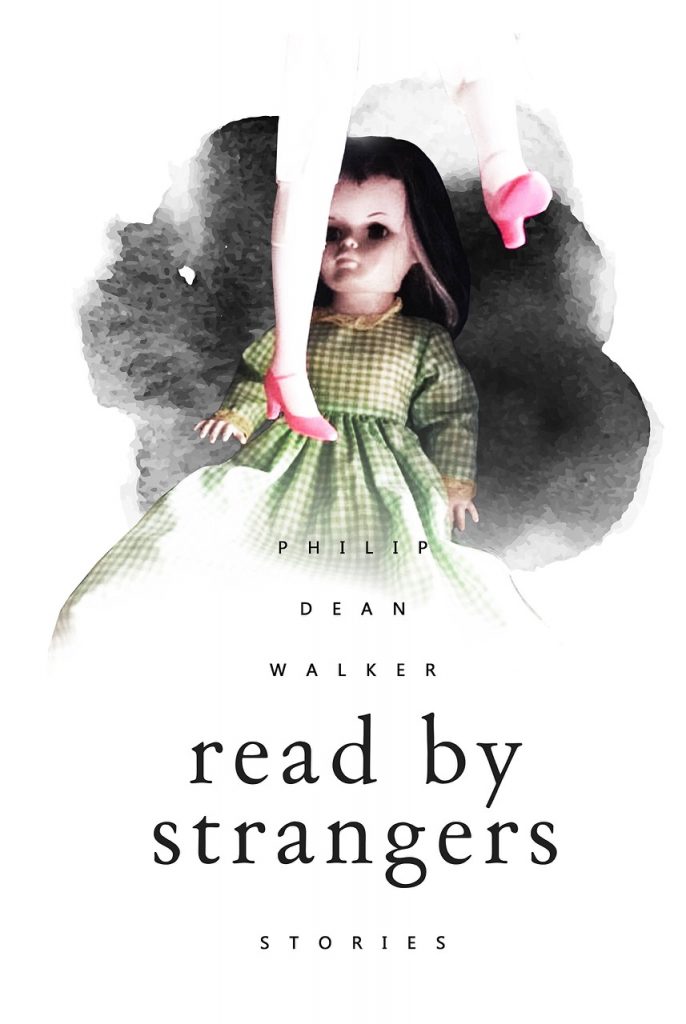
(Lethe Press, 2018)
REVIEW BY JOHN COPENHAVER
—
Philip Dean Walker’s new short story collection, Read by Strangers, tests, blurs, and breaks boundaries. These boundaries are literal: a group of kids burglalize an abandoned house. They’re intellectual: a professor steals inspiration from her student. And they’re emotional: a mother obsesses over a virtual reality game rather than caring for her child. At times, Walker’s writing is transgressive, wriggling toward experimental: In one story, he employs syntax that mimics the didactic lines of Proverbs and, in another, he experiments with the structure of a playbill biography. His choices are bold and compelling, urging us to question our truths and our desire to push boundaries, to cross a line.
In the preface to Winesburg, Ohio, early American modernist Sherwood Anderson defined what make people “grotesque,” a term the great short story writer Flannery O’Connor would later put her southern Catholic spin on. According to Anderson, it’s when characters cease to be able to hold multiple truths in their hearts and instead adhere to a single, uncompromising Truth. A concept in keeping with our current political moment, but also in line with Walker’s Read by Strangers. Many characters in Strangers latch on to an idea of themselves or the world around them and make decisions based on that idea: “my mother doesn’t love me” or “my boyfriend is out of my league” or “other women are the problem in a male dominated workplace.” Embracing these absolutes leads these characters to make choices that take them beyond a common social or moral framework, leaving us to ponder and scrutinize their actions: Would we behave as they do? Are their actions redeemable?
The opening story of the collection, “Unicorn,” is narrated in the first person plural by group of kids who explore an abandoned house. They are hunting for evidence of the family who lived there, a family who deserted it after the tragic death of their child. What begins as teenage curiosity shifts as the story unfolds; a chilly, dispassionate timbre emerges, as if these kids can’t quite understand the magnitude of what they’re exploring. It’s an appropriate introduction to the collection: Walker invites us to look in, but warns us that we might not like what we see: It may baffle us, offend us, or implicate us. Later, we return to this theme in “Habitat,” which cleverly employs collective narration through group email chain. In it, the correspondents follow the disintegration of a mutual friend, but their concern is clearly rubbernecking in disguise. They want to know the story, but not because they care about the tragic figure at its center. In the penultimate story, “Versimilitude,” a college writing professor, who fears her creative powers are waning, reads a compelling student story and retraces the student’s steps to the source of his real-life inspiration. She then harvests his experience for her own writing, a disturbing step beyond plagiarism. In Read by Strangers, the characters are driven by their singular Truths, often the product of their deep insecurities, which they combat by crossing a boundary, whether it’s breaking in a house, gawking at someone else’s tragedy, or stealing a student’s material for your own. Like Anderson’s characters in Winesburg, Ohio, they’re a menagerie of grotesques, trapped by their Truths.
In several stories, these trespassers realize the horror of their actions and make a gesture back toward the realm of acceptability, attempting to step back over the line they crossed: “I will put my child first,” “I won’t endanger my coworker,” “I am loved.” Whether, as readers, we agree to let these characters back over the line is up to us. Walker leaves us hanging in most cases, bracing ourselves for an impact that we imagine will come, making us as complicit as he is in the outcome of these characters’ lives. If we judge, what does that say about us?
—
John Copenhaver is the author of the historical crime novel Dodging and Burning (Pegasus, 2018). He writes a crime fiction review column for Lambda Literary called “Blacklight” and he is the four-time recipient of Artist Fellowships from the D.C. Commission on the Arts and Humanities. He is also Lambda Literary Fellow and Larry Neal awardee. His work has appeared in Lit Hub, Electric Lit, Glitterwolf Magazine, and others. He grew up in the mountains of southwestern Virginia and currently lives in DC where he chairs the 7-12 grade English dept. at Flint Hill School.
![[PANK]](https://pankmagazine.com/wp-content/themes/pank/assets/images/pank-logo-large.png)
